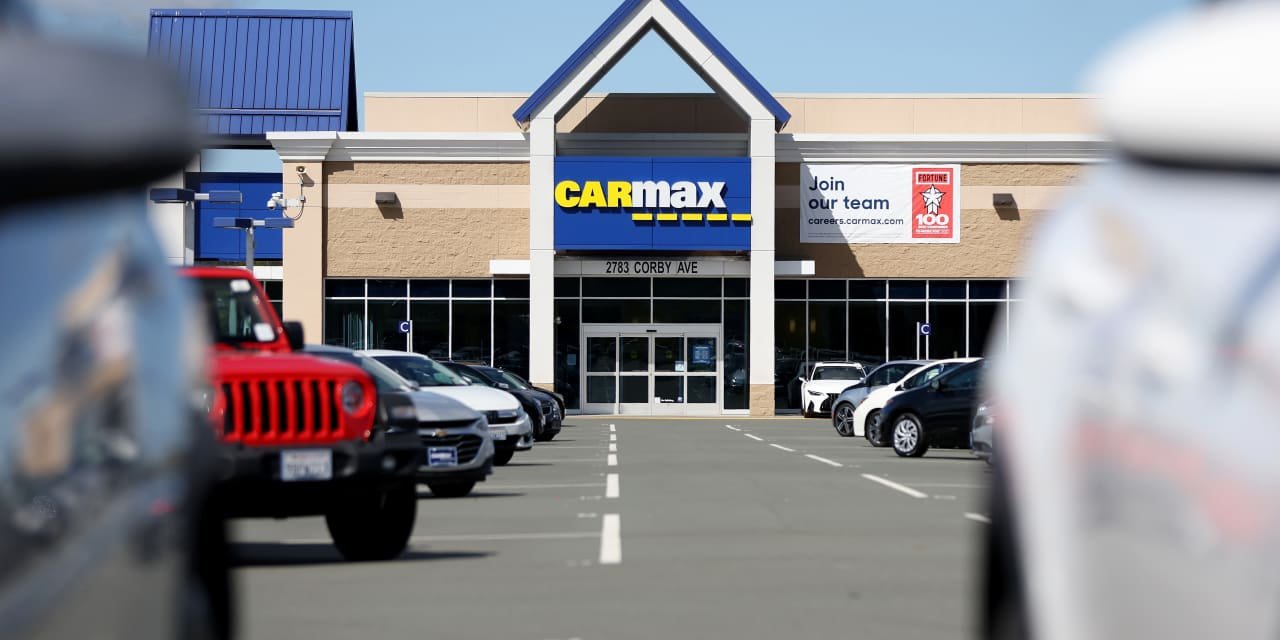During the pandemic, many people became comfortable ordering their groceries online, bringing online sales to one of the final bricks-and-mortar categories. Yet while consumers might feel comfortable not squeezing their avocados, they largely have still wanted to kick the tires when they’re shopping for a new car.
That, however, could finally be changing.
“Auto retail is one of the final frontiers in the digital revolution, with online purchases representing a low-single-digit percentage of annual auto sales in the United States,” notes William Blair analyst Sharon Zackfia. “However, consumer preferences and new competitive entrants hold the promise of accelerating digital disruption in the industry, and virtually every major player has created or expanded their digital platforms in recent years.”
The pandemic, of course, sped up the world of automotive e-commerce, although
stock has been a roller-coaster ride. Its online model sent Carvana shares to more than $360 during in 2021, but it spiraled to only to find itself down to just $7 by December 2022 as investors fled amid liquidity concerns. The shares soared more than 1,000% in just over half a year at one point last summer, and are still up some 930% over the past 12 months. So far in 2024, the stock is up 63% to a recent $87.
CarMax
,
too, has been strong, if more measured: The shares are up 47% in the past year and have climbed 8% in 2024.
Advertisement – Scroll to Continue
Both companies have had to deal with the moving target of used car prices, a category that has seen large swings since the onset of the pandemic. In addition, the return of a more normal operating environment means in-person shopping has bounced back, though plenty of consumers are still buying cars online.
Nonetheless, Zackfia is optimistic about online used car dealers, rating CarMax and Carvana Outperform. She writes that in February, analysis of website data and traffic suggests “a nice improvement in year-over-year sales trends at both Carvana and CarMax,” helped by a strong tax refund season. “We believe improving affordability has also bolstered demand, with used car pricing down again.”
CarMax in particular saw “nicely improved trends” last month, she notes, leading her to believe that its used car comparable sales will be up between 3.5% and 4% in the fiscal quarter ended February, comfortably above consensus estimates of 1% to 1.5%. That would mark its first positive comp gain since November 2021. The company’s latest financial results are due out April 11.
Advertisement – Scroll to Continue
For Carvana, she writes that the “company appears on pace to nicely exceed” her estimate of 83,000 autos sold for the quarter ending in March, which itself is already above consensus. Carvana will report earnings on April 17.
The companies themselves have been upbeat.
Earlier this month at a Morgan Stanley conference, Carvana Chief Executive Ernie Garcia III said “customers are going to shift in our direction over time. I think they’re getting more and more accustomed to buying everything they buy online. I think there’s normalization of even buying cars online.”
Advertisement – Scroll to Continue
In late 2023, CarMax CEO William Nash noted that total revenue from online transactions was approximately 31%, up from 28% in the prior year.
”As we have said before, we believe consumers in the used car industry will increasingly prefer to have the ability to progress digitally. We are seeing this in our data,” he said back then.
That said, most analysts aren’t as sanguine. Less than half of those tracked by FactSet have a Buy rating or the equivalent on CarMax, with an average price target below where the shares trade today, and Zackfia is one of only two Carvana bulls: The average analyst price target for that stock implies a 28% decline.
Carvana’s huge stock rally likely accounts for much of that skepticism on Wall Street. Meanwhile, CarMax and more traditional auto peers have all underperformed the broader market in the last month, likely due to the uneven used car market, which has been buffeted by high interest rates and patchy supply.
There’s also the perpetual concern that
Advertisement – Scroll to Continue
which has said it will allow auto sales on its website, will upend the game.
That is a worry for CarMax and Carvana, but it’s also a form of validation, suggesting that consumers will want to continue buying more cars online in the future.
Write to Teresa Rivas at teresa.rivas@barrons.com


